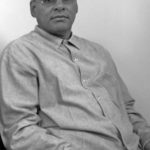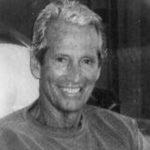After three decades of incarceration Noel Valdivia Sr. left San Quentin a free man on July 8. I met Noey on a beautiful spring day in 2002 as we were … [Read more...]
Noted Crusader Passes On
Dr. John Irwin passed away at his home in San Francisco on January 3 at the age of 80. A memorial service was held in The Garden Chapel on February 19 … [Read more...]

